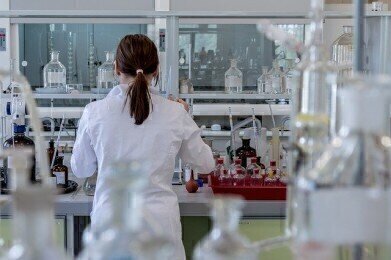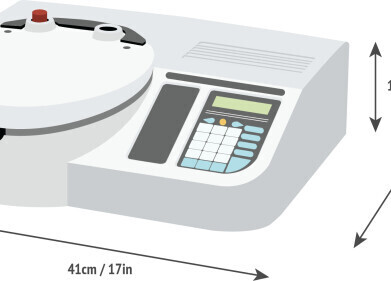Chromatography
How Do Nitrogen Gas Generators Work?
Jun 25 2022
The capacity to heighten the accuracy of data, accelerate workflows and improve occupational health and safety are just some of the benefits offered by nitrogen gas generators. These clever devices generate pure, laboratory-quality nitrogen at the touch of a button. This eliminates supply issues, improves the quality of results and prevents valuable instruments from damage caused by exposure to moisture and other contaminants.
Want to know more about how nitrogen gas generators work? Read on for a behind-the-scenes look at how the devices work and some different laboratory applications.
The mechanics of nitrogen gas generators
Most nitrogen gas generators use one of two methods: Membrane or Pressure Swing Adsorption (PSA). We take a closer look at each below:
Membrane nitrogen gas generators
These devices separate nitrogen from pressurised ambient air using semi-permeable membrane fibres. Ambient air is made up of around 78% nitrogen, which means there’s plenty available. As air passes through the membrane fibres, nitrogen is separated from oxygen. This is because nitrogen is considered a “slow” gas and is far less soluble than oxygen. As a result, nitrogen passes through the membrane fibres at a slower rate.
Before reaching the semi-permeable membrane fibres, air also passes through pre-filters designed to remove contaminants such as moisture, oil and particulates from the air. Purified nitrogen with purity levels as high as 99.9% is then collected in a container and ready for use.
Pressure Swing Adsorption (PSA) nitrogen gas generators
Pressure Swing Adsorption is another widely used method to generate ultra-pure nitrogen. Systems rely on multiple cylinders to filter compressed air through a Carbon Molecular Sieve (CMS). The sieve captures all elements, excluding nitrogen. With purity levels as high as 99.999%, PSA is the method of choice for applications that require absolute purity.
In the spotlight: advantages of nitrogen gas generators
Both Membrane and PSA nitrogen gas generators offer a myriad of benefits to laboratories. These include:
-
A reduction in long-term operating costs
Eliminating the need to rent tanks, pay for delivery/collection and purchase the gas itself translates to significant savings. This benefit is especially high for laboratories that use high amounts of nitrogen. Onsite gas generators also redue the risk of downtime caused by supply chain disruption.
-
A flexible solution
Many nitrogen gas generators allow operators to control the purity and flow rate to accommodate the needs of different applications.
-
Compact, portable and easy to use
Modern nitrogen generators are small and benchtop friendly. They’re also easy to operate and don’t need to be manually changed.
Controlling highly sensitive atmospheres such as IVF incubators is just one of many uses for nitrogen gas generators. Find out more about these state-of-the-art devices in our complete guide, ‘Laboratory Generators - Everything You Need to Know’. Or check out 'Optimising Bioreactor Yields with Smart Sensors' for more on the latest laboratory developments.
Digital Edition
Lab Asia Dec 2025
December 2025
Chromatography Articles- Cutting-edge sample preparation tools help laboratories to stay ahead of the curveMass Spectrometry & Spectroscopy Articles- Unlocking the complexity of metabolomics: Pushi...
View all digital editions
Events
Jan 21 2026 Tokyo, Japan
Jan 28 2026 Tokyo, Japan
Jan 29 2026 New Delhi, India
Feb 07 2026 Boston, MA, USA
Asia Pharma Expo/Asia Lab Expo
Feb 12 2026 Dhaka, Bangladesh



















